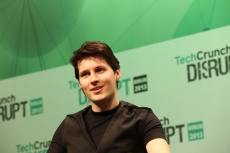
AMD fixes borked SEV encryption
Epyc fail
AMD has issued a firmware patch to fix its Secure Encrypted Virtualization technology (SEV) encryption.

IT companies’ rebel at GCHQ’s encryption plans
We want to participate in every encrypted email
While the UK has been distracted by Brexit, GCHQ has sounded out plans to force IT companies to hand over opened copies of every encrypted email sent by their customers.

Google "browser encryption" might stop UK censorship
Sky and BT warn that government was wasting its time
In a move that everyone foresaw, other than the people who gave you Brexit, a small change to Google’s browser could make the UK government’s attempts to censor the internet useless.

EU wants sharing to break encryption
But no back doors
The European Commission has proposed that member states help each other break into encrypted devices by sharing expertise around the bloc.

Aussie PM says Laws of Mathematics unimportant
The laws made up by Aussie politicians decide reality
Australian Prime Minister Malcolm Turnbull has said the laws of mathematics come second to the law of the land in a row over privacy and encryption.

US spooks tried to bribe Telegram developers
Claims Russian founder
Pavel Durov, the Russian founder of the popular secure messaging app Telegram, has claimed that US intelligence agencies tried twice to bribe his company's developers to weaken encryption in the app.

Weakened and unstable British PM declares war on encryption
Gotta blame someone
UK PM Theresa May has failed to notice that bringing out too many unpopular policies can make even an unelectable leftie like Jeremy Corban look viable.

UK about to go mental with Internet laws
End to encryption and a porn licence
The UK government is planning to enact a daft batch of Internet reform which will require people to register at the post office if they want to access porn sites.

AACS 2.0 encryption cracked by Smurfs
Not GNOMES or elves
Smurfs have made a mockery of the AACS 2.0 encryption used to protect UHD Blu-ray disks.

Heartbeat data to be used to authenticate wearable devices
A login method for cars, doors, PCs and everything else
Over the past few years, the concept of using heartbeat data to encrypt information and authenticate personal and enterprise users has been gaining consideration as an alternative to expensive, computationally-heavy encryption techniques unsuited for wearable devices.





